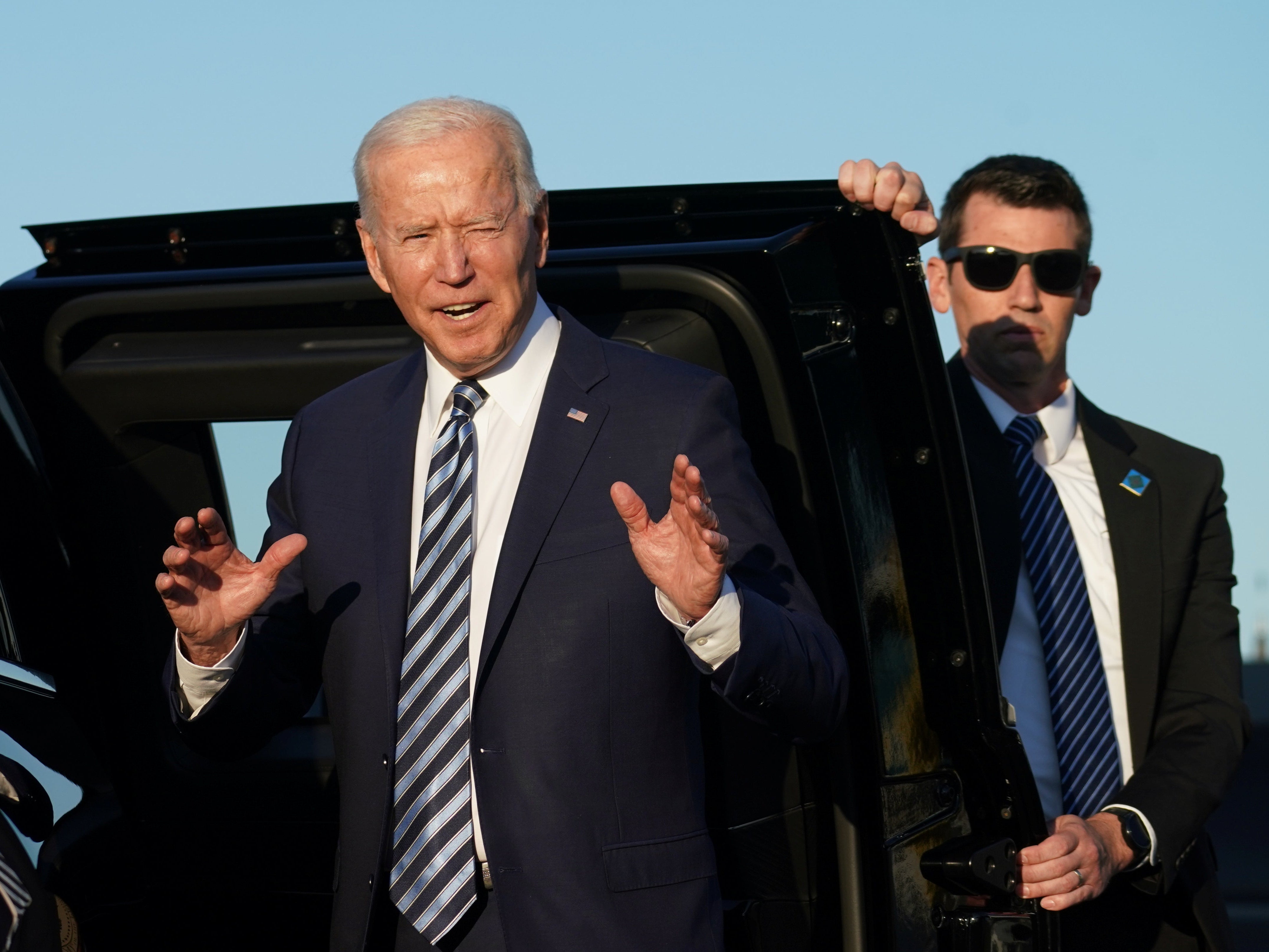What we can actually expect from Boris and Biden at the G7
Two very different leaders, two very different men – any feigned friendliness between them could be toe-curling, writes Holly Baxter


The G7 is one of those events that means both nothing and everything: in the words of one United Nations diplomat who sometimes takes time out of his day job to write articles for The Independent’s US opinion desk, it can often feel like it’s all flirting and canapes. Most of the hard work has already been done, even though dignitaries are just arriving in Cornwall: lukewarm announcements have been made about Covid vaccines and global responsibility; Biden has warned Russia and China that they will be “held to account” for any wrongdoing; Boris Johnson has made noises about a “Marshall plan” for climate change.
Of course, there are the usual controversies too. Boris is already having to defend himself for taking a private plane a couple of hundred miles just after making that ill-timed environmental statement. Biden has remained tight-lipped about whether the “special relationship” is still special, and rumours are that he used the term in a phone call to Johnson once and was roundly insulted for sounding “weak”.
Emin Pasha, our New York-based diplomat, wrote this week about his expectations for G7 – and the bar is pretty low. His main concern is that developed countries are being left behind in the vaccine race, and that this will mean “going back to normal” will remain tantalisingly out of reach until beyond next year.
Elsewhere, our reporter Andrew Naughtie gave us a quick breakdown on the beef between Boris and Biden, which goes further back even than that infamous remark about Obama removing a Churchill bust from the Oval Office because of a supposed “ancestral dislike”. Biden is famously not a fan of Brexit, and especially not a fan of what it might mean for reigniting problems in Ireland. His philosophy on leadership is also wildly different to Johnson’s, and he has little time for hair-flicking and effusive word games for the hell of it. One cannot imagine the two becoming easy friends; if you thought Theresa May holding Donald Trump’s hand was awkward, then something even more toe-curling could be coming.
The G7 is, ultimately, more about posturing than anything else. It is a show of strength and unity between the seven original countries and now some extra invitees. But as Pasha says in his op-ed, a global agenda for Covid that doesn’t include China and Russia – who, for better or worse, developed some of the first vaccines and are in charge of distributing them – can only go so far.
The British and American public may be more excited to hear about a reported opening-up of borders and possible air bridge between our countries. As a Brit who’s been stuck stateside since 2019, my ears naturally prick up when I hear such things. However, at the time of writing there’s still been no firm commitment from the White House or No 10 on what the details may be. Considering the recent greening and de-greening of Portugal on the UK’s travel list, I’ll curb my enthusiasm until there’s more to it than promising speeches; and we’d be wise, as journalists, to take the same approach to the G7.
Yours,
Holly Baxter
US Opinion Editor



Join our commenting forum
Join thought-provoking conversations, follow other Independent readers and see their replies
Comments